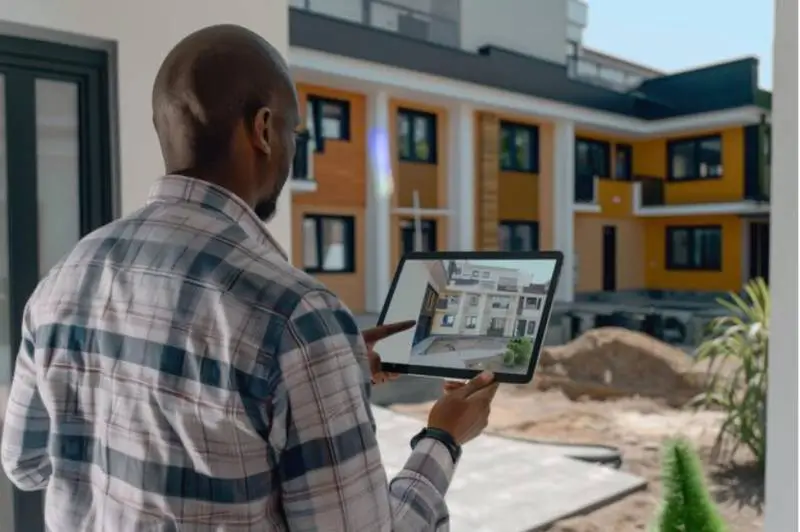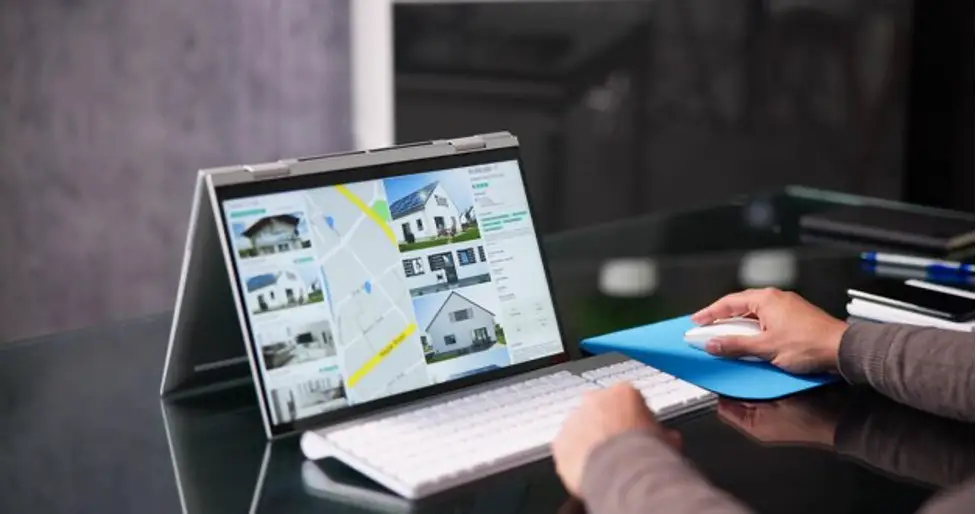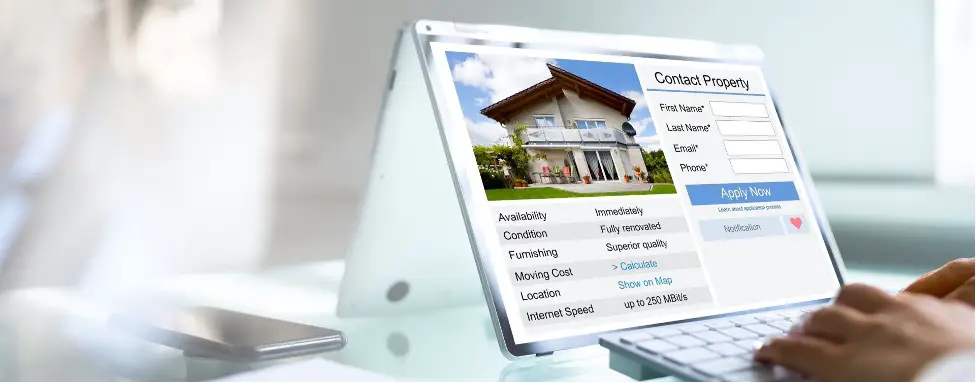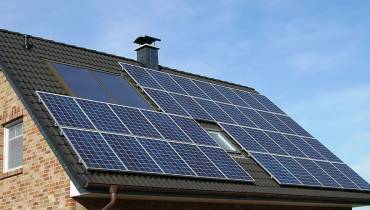Building Custom Property Management Software for Real Estate: An Overview

In the real estate industry, organization and management of property is an area of significant importance. Property management software can streamline operations, reduce manual tasks, and provide better service to tenants and property owners alike.
In this article, we share crucial information on custom software for property management, its applications and benefits, including the types of software for property management, the stages of development, the cost of development, and more.
Let’s delve in…
What is Property Management Software?
Property Management Software or (PMS) is defined as applications and systems that support property management in areas like tenants’ communications, collection of rents, leases, repairs and maintenance among others.
An on-shore property management software is created specifically for a company’s requirements thus making it more adaptable and effective.
Types of Property Management Software

Some of the most common property management software (PMS) include:
1. On-Premises Property Management Software
On-premise software is installed in your company’s machine and is mainly stored on the servers of the company. It gives businesses complete authority over data management and security together with system performance.
This type of property management software is best suited for large real estate firms that have complicated operational requirements. However, it comes at a higher cost of acquisition as well as the cost of maintenance.
2. Cloud-Based Property Management Software
Cloud-based solutions, powered by SaaS software development, are hosted remotely and accessible through the internet.
Typically offered on a subscription basis, these solutions provide flexibility, seamless accessibility, and automatic updates. Their scalability and cost-effectiveness make them especially popular among small and medium-sized real estate businesses looking for efficient property management tools.
3. Residential Property Management System
This system assists in the management of homes, apartments, and housing units. It helps them manage lease agreement and copy, rental payments, tenants and correspondence with them as well as schedule maintenance of the property.
4. Commercial Property Management System
A commercial property management system is specifically designed to cater for offices, shops, factories, and other forms of commercial property. Some of the activities include the management of lease agreements, tenants, rent, maintenance, among other needs peculiar to the business.
5. Apartment Management System
This program is customized uniquely for apartment buildings, which enable you to carry out such tasks as screening of tenants, collecting rent, maintaining records of maintenance and other tasks like filling of vacancies.
6. Hotel Property Management System
It has to be mentioned that hotel property management software is developed for the hospitality industry solely. Some of them include: managing room bookings, reservations, guest information, billing, and inventory enhance guest satisfaction and organizational effectiveness.
Key Features of Property Management Software

Some top features of the best property management software include:
1. Accessibility
Property management software should offer accessibility across devices, allowing property managers and tenants to use the system from any location through desktops, tablets, and smartphones.
2. Scalability
Such software needs to be developed in such a way that they are capable of accommodating growth of the property management business.
Every successful software must be able to perform the necessary tasks for an increased number of properties or tenants without strain.
3. Responsiveness
The software should operate smoothly in order to work well with all sorts of devices with different resolution. No matter if the client uses a mobile, tablet, or PC, the system should be accessible and usable in the same manner.
4. Upgrades
Property management software should also have upgradeability so that changes can be done to reflect new requirements in business operations, as well as advances in technology.
Updates should come on a regular basis to enhance the functionality and potentially fix some glitches.
5. Automation
Some of the automation features include rent reminders, lease renewals and maintenance requests which are beneficial in reducing the number of manual tasks accomplished for property managers.
6. Security
Security is a key factor in property management software since property management involves the collection of highly sensitive information, such as personal details, addresses as well as contact information. This should comprise of the matters such as encryption, data protection, and secure access in a bid to shield sensitive tenant and property data.
7. Reporting and Tracking
It is recommended that the use of software should enable reports that relate to finances, maintenance, occupancy and others. The tracking tools allow for monitoring of data in real-time, and this assists the managers of properties in making better data-backed decisions.
8. Lease Management
Lease management solutions enable property managers to generate, house, and monitor lease agreements, renewals, and expirations against legal and corporate benchmarks.
9. Visually Appealing Interface & Design
A user-friendly and visually appealing interface enhances usability. Property managers and tenants should be able to navigate the system intuitively without facing technical challenges.
10. Tenant Screening
Tenant screening enables managers to evaluate potential tenants through credit reports, references among other factors therefore only the worthy candidates are accepted.
11. Integration
The software should integrate with other essential tools such as accounting systems, payment gateways, and third-party applications to create a unified platform for property management.
Procedure for Custom Property Management Software Development
Some of the key steps for custom property management software development include:
1. Identify Scope and Objectives
The first step is to define the scope of the project and the specific objectives the software must achieve. Whether managing residential or commercial properties, knowing the requirements will guide the development process.
2. Assemble and Recruit
Next, assemble a skilled development team that includes software developers, designers, and testers. You can also opt for offshore software development by hiring third-party developers who specialize in real estate software solutions. This approach can offer cost-effective expertise while ensuring your product is built efficiently and on time.
3. Plan, Strategize, and Execute
Effective planning is crucial for successful project execution. Begin by developing a comprehensive project schedule that outlines software design, estimated time for each activity, tools and languages to be used, and key project milestones. This strategic formulation should guide the creation of a detailed plan, which can then be implemented by your development team.
To ensure a polished and user-friendly outcome, consider hiring UI/UX designers who can enhance the design process and ensure every phase is completed efficiently.
4. Testing and Launching the Software
After development, a thorough Software testing Service is required to identify bugs and performance issues. Once tested and approved, the software is launched to the public or internal team, depending on the project's objectives.
Cost of Custom Property Management Software Development
The actual cost varies according to some key factors:
The specific features and functionalities to be developed
The number of coding and development personnel, and
Whether the software will be hosted locally or cloud based.
It is estimated that on average implementing a basic custom property management system could set you back between $30,000 and $100,000. The sophisticated ones may cost as much as $200,000 and above.
Another factor is the total payment made by the buyer, which originates from the type of contract chosen that’s based on whether the buyer is charged at a fixed dollar amount or by the hour.
Conclusion
Real estate solutions that would be tailored to the needs of a business require a process that is relatively complex and requires a good understanding of the business needs as well as application development solutions. When done properly, combining the core components of automation, scalability, security, and responsiveness will bring about enhancement of productivity and user satisfaction.
For residential, commercial, or hotel property management, property-specific climate-based real estate management solutions will achieve an organization’s goals relating to efficient operation, improved service delivery, and a competitive edge in the property business.










![5 Unexpected Career Skills You Can Learn from Video Games [node:title]](/sites/default/files/styles/front_featured__front_/public/video%20game%20play%20on%20tv%20or%20monitor%20skills%20learned.jpeg?itok=NYJc5ZoS)
![3 Questions to Ask Before Accepting a Remote Job Offer [node:title]](/sites/default/files/styles/front_featured__front_/public/Woman%20Doing%20Remote%20Work.jpeg?itok=FbR2LVTq)
























